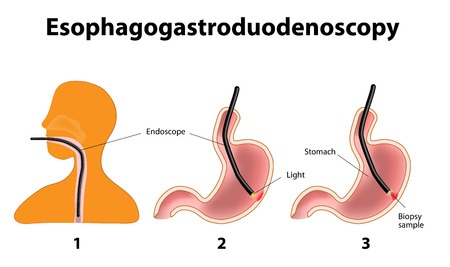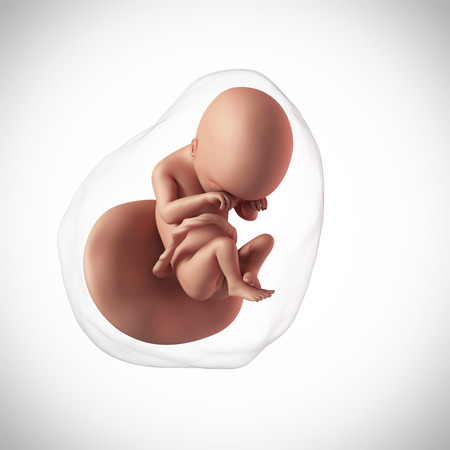What is Acid Reflux?
The normal physiological process of digestion begins in the mouth with the secretion of saliva. In the stomach, the cells secrete hydrochloric acid which breaks down the food and aids in digestion. The protective lining of the stomach can withstand the acid very well but the upper gut (food pipe) has a thinner lining making it more vulnerable to the acid. Upward movement of this digestive acid from the stomach into the food pipe is called as acid reflux. It is felt like a burning sensation in the chest region. Acid reflux symptoms occurring more than two times a week are diagnosed as GERD (Gastro-Esophageal Reflux Disorder). Normally the acid does not regurgitate as there is a valve in between the stomach and esophagus which is called as Lower Esophageal Sphincter (LES). Any condition which leads to incomplete closure of this valve will give rise to acid reflux.
What Causes Acid Reflux?

Acid reflux arises mainly out of dietary (indigestion) and lifestyle imbalances. There are some predisposing factors which are known to be primary acid reflux causes. They are as follows:
- Obesity
- Sedentary life style
- Large portions of food or having a heavy meal
- Lying down immediately after eating
- Food with low dietary fiber
- Taking too much table salt in the diet
- Certain foods like onions, garlic, spicy and fried food
- Smoking
- Consuming too much tea or coffee
- Pregnancy
- Certain medications like muscle relaxants, blood pressure medicines etc
- Hiatal hernia
Hiatal hernia is an anatomical defect which is a cause for acid reflux and GERD. A part of the stomach moves upward through a defect in the diaphragm causing incomplete closure of the LES. Due to this structural defect, the person chronically suffers from symptoms like acidity and heartburn.
Signs and Symptoms of GERD
- Heartburn! What is Heartburn? – It is a burning sensation felt in the chest region. More commonly noticed after a heavy meal. Heartburn symptoms are the commonest presentation of GERD.
- Feeling of fullness
- Bloating
- Gas and flatulence
- Burping
- Sour Eructation
- Water brash- Rising of sour liquid into the mouth with burning in mouth and throat
- Nausea
- Chronic hoarseness of voice
- Dry cough and laryngitis
- Upper abdominal pain
Diagnosis and Treatment of Acid Reflux

If you notice symptoms of acid reflux then consult your doctor, as long standing symptoms can harm the stomach lining and even lead to cancer. The diagnosis is made on the basis of clinical symptoms. Certain diagnostic tests are used to assess the extent and exact cause of the acid reflux.
- Endoscopy – A long, flexible tube with a tiny camera at one end is inserted into the food pipe. It helps in visualization of the lining of the esophagus and the stomach. Stomach ulcers, hiatal hernia etc can be diagnosed by doing an endoscopy.
- Esophageal manometry – It is used to check the functioning of the LES.
- Barium swallow – A radio opaque dye is given orally to the patient and serial x-rays are taken as the dye travels down into the stomach and duodenum. Narrowing of esophagus and structural defects can be seen on a barium study.
- Biopsy – In case a lesion is found, a biopsy is taken to check for presence of cancerous cells.
Acid reflux treatment mainly includes the correcting of dietary habits. For symptomatic relief acid reflux medicine such as oral antacids, antacid suspensions and proton pump inhibitors are also effective. If a particular cause is identified, it should be treated accordingly.
Severe cases of acid reflux not responding to treatment may need surgical treatment in the form of fundoplication- creating an artificial valve using the stomach lining to prevent reflux from the stomach to the esophagus.
Prevention of Acid Reflux

As we have discussed in the causes, acid reflux is largely a dietary and lifestyle disorder. The following acid reflux diet tips will help you to minimize the distress caused by acid reflux.
- Eat smaller meal portions and avoid lying down immediately after eating
- Lose weight if you are overweight
- Begin an exercise routine as it will help you digest the food better.
- Stop smoking
- Have a fiber rich diet and avoid fried and rich food
- Have plenty of water and fluids.
- Cut down on the tea and coffee intake as they increase the acidity.
- Sleep with the head end of the bed slightly raised to prevent reflux.
- Avoid tight fitting clothes at the waist.


